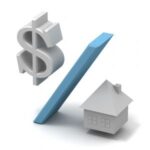The 1031 Adviser:
Converting 1031 Replacement Property into a Principal Residence
It’s not uncommon for an investor to convert a property held for business, trade or investment into a principal residence. Change in investment potential of the property, or a desire to get out of the landlord business, might make the investor decide to change the use from investment to a personal primary residence. And prudent investors may have utilized IRC section 1031 to defer gains and depreciation recapture from prior sales of investment property, thus accumulating gains in the process which have been rolled into the property that is now being “converted.” What happens to those gains once the property is converted to a principal residence?
We first need to determine how long the property was held for business, trade or investment prior to the conversion. Section 1031 of the IRC allows gains and depreciation recapture to be deferred when the taxpayer is selling property held for business, trade or investment, and properly exchanges it for another property intended to be used for business, trade or investment (the “replacement property”). If the taxpayer complies with the exchange rules, then the deferred taxes from the relinquished property can be “rolled into” the replacement property. Whether the replacement property is, indeed, one held for business, trade or investment likely depends on both the taxpayer’s intent at the time of the exchange (did the taxpayer “intend” to acquire the replacement property for productive use in business, trade or investment) and the actual use of the replacement property once owned. If the taxpayer converts the replacement property into his primary residence one day after acquisition, it will be difficult to show that at the time of the exchange the intent was to acquire for investment purposes. In the same way, a quick sale of the replacement property will be considered speculative (not permitted), and the exchange will also be tainted.
But if the taxpayer holds the replacement property for at least 1 – 2 years (depending on the advice of your CPA/ tax advisor), and then changed circumstances require a modification in use to that of principal residence, then it’s unlikely that the exchange would be disallowed, provided it was not the exchanger’s intent at the time of the purchase of the property to convert it after the 1-2 year period. Moreover, there is no obligation at the time of the changed use (when the taxpayer converts the property from investment to primary residence) to recognize the deferred federal taxes (but note that some states will require the recognition at the time of the change in use).
What about a subsequent sale of the converted property (that is being used as a principal residence)? Then IRC section 121 would control. This provision provides that taxpayers selling a property that has been a principal residence for 2 of the last 5 years (not necessarily consecutively, but the time period can be intermittent) can exclude from the capital gains tax the first $250,000 of the gain (or $500,000 for married couples filing jointly). An additional provision of section 121 provides that property sold that had been purchased in a 1031 exchange must be owned for a total of 5 years at the time of the sale in order to use section 121 (and then only if the period of primary residence was the requisite 2 years cumulatively).
The rules governing these conversions are complex, and we provide here only general discussion of the issues. Prudent taxpayers must always consult with their tax adviser to determine their specific tax implications.





